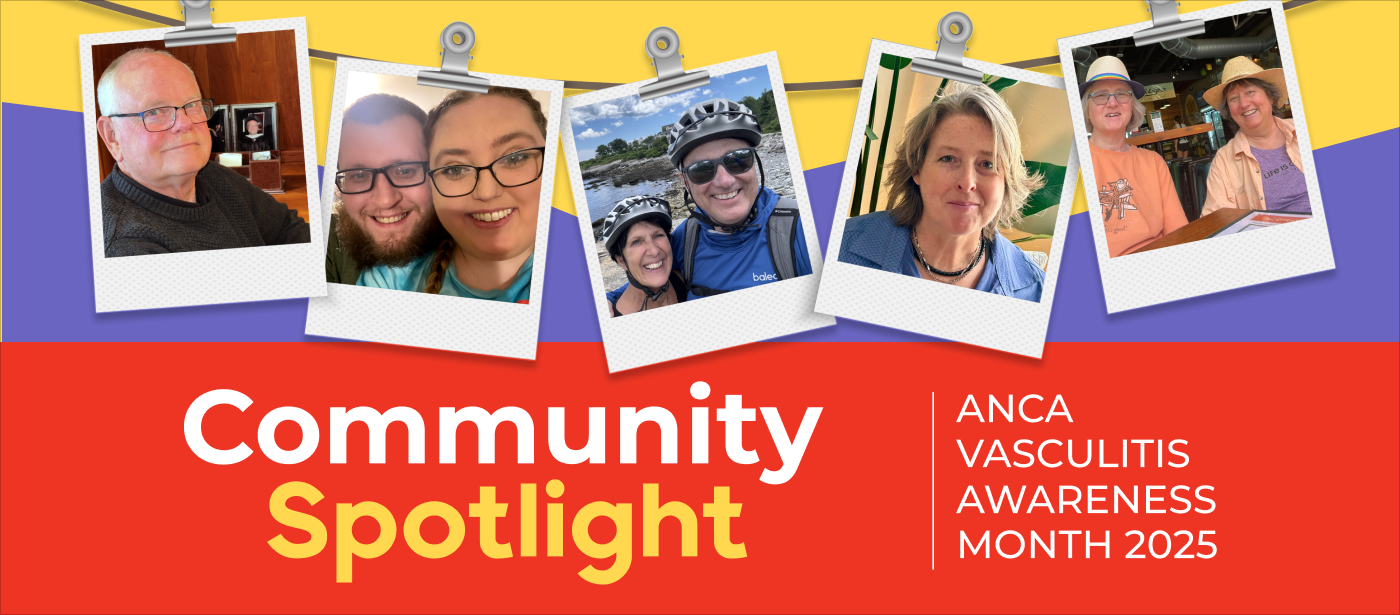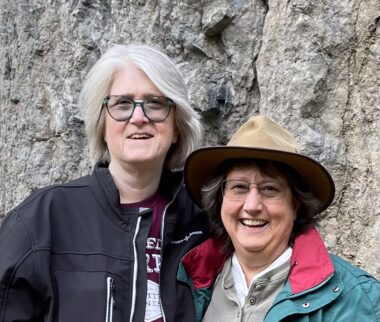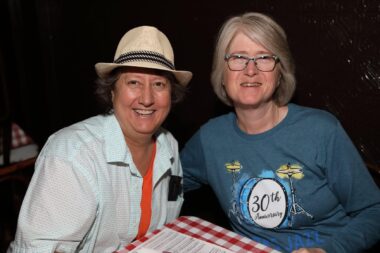Becoming a caregiver is all about adjustments and problem solving
Written by |


Lynette Matson, left, provides care for her wife, Laure Larkin, who has granulomatosis with polyangiitis and liver problems. (Photos courtesy of Lynette Matson)
This is Lynette Matson’s story:
Before my wife was diagnosed with granulomatosis with polyangiitis (GPA), I thought being a caregiver meant fluffing pillows, offering comforting words, and maybe making the occasional cup of tea. Turns out, it’s more like becoming a full-time lawyer, personal chef, pharmacist, and part-time psychic. No one warns you about the paperwork, the medical jargon, or the sheer terror of realizing that, suddenly, you are the one responsible for making sense of it all.
My first battle as an official caregiver? The pharmacy. Seems easy, right? Wrong. Picking up a prescription requires you to know your spouse’s birthdate immediately, without hesitation, under extreme pressure. If you so much as pause, the pharmacist will look at you like you’re some kind of fraud. I’ve now recited my wife’s birthdate more times than my own. But, of course, the one time I get it wrong, I’m met with suspicion, as if I’m part of an elaborate underground medication heist.
Then there’s grocery shopping. You’d think food shopping would be simple. Nope. Finding no-salt, high-potassium foods that aren’t outright poisonous? That’s a high-stakes mission. I now read labels with the intensity of a detective solving a murder case. And cooking? Let’s just say I have a new appreciation for salt — mainly because I can’t use it anymore. My first few meals were … experimental, to say the least. My wife is a trooper, though; she only gagged once. Progress!
Adjusting to her limitations has been tricky. We used to go on spontaneous trips, eat out whenever we wanted, and stay up late watching TV. Now, I find myself saying things like, “Do we have enough emergency snacks packed?” before even considering leaving the house. Our “wild nights out” have been replaced with “wild nights in,” where I frantically Google medication side effects at 2 a.m.

Larkin and Matson celebrate their anniversary.
And now, the kidney transplant. It’s a big deal, and I’d be lying if I said I wasn’t scared. There are so many what-ifs, and so many new limitations to consider. But the biggest fear? Breaking down. Not because I’m afraid of feeling overwhelmed, but because if I break down, she’ll feel like she has to take care of me, and that’s the last thing I want. So I keep pushing forward, making bad jokes, learning to cook food that doesn’t taste like cardboard, and pretending I have it all together.
Somewhere along the way, I also realized I was isolating myself. I got so caught up in managing everything that I forgot that I needed support, too. So I’m working on that — one awkward conversation and reluctant invitation at a time.
At the end of the day, GPA has changed our lives, but it hasn’t changed us. We still laugh. We still find joy in the little things. And if we can survive my cooking, we can survive anything.
In recognition of Vasculitis Awareness Month in May, the ANCA Vasculitis Community Spotlight campaign features a series of stories highlighting the real-life experiences of people affected by vasculitis, written in their own words. Follow us on Facebook, Instagram, and X for more stories like this, using the hashtag #ANCASpotlight, or read the full series.




